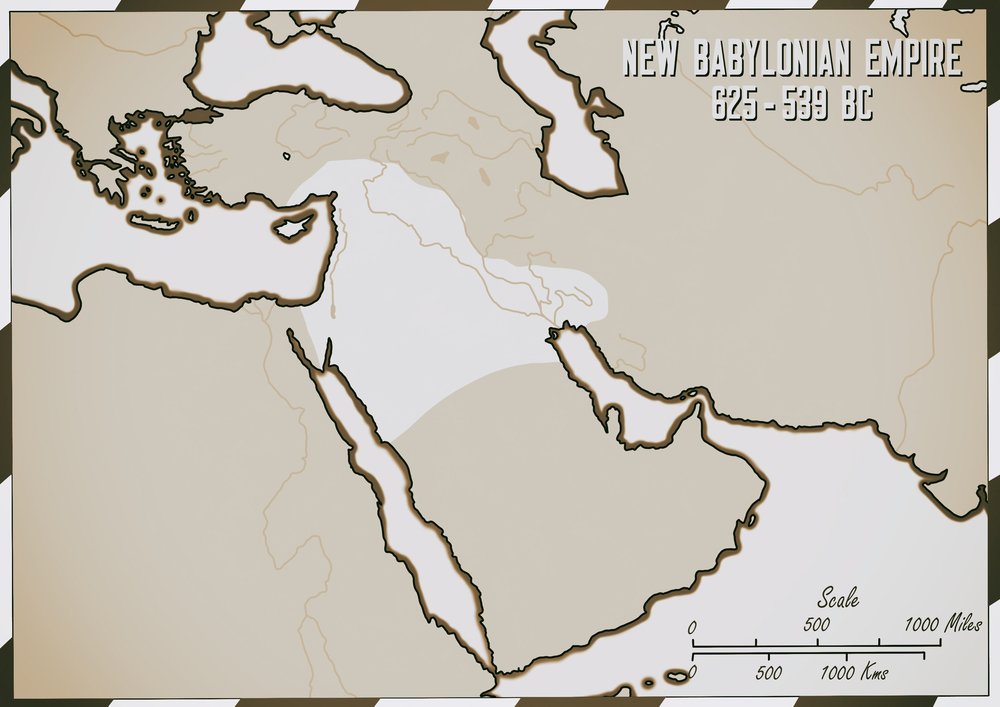
In the third year of the reign of Jehoiakim king of Judah came Nebuchadnezzar king of Babylon unto Jerusalem, and besieged it. (Daniel 1:1)
After the reign of Solomon, the kingdom of Israel split under the reign of Rehoboam, Solomon’s son. The Northern Kingdom, now under the leadership of Jeroboam, remained Israel. The Southern Kingdom, the tribe of Judah that remained loyal to Rehoboam, became Judah. These events occurred around 930 B.C. (see 1 Kings 12).
In 722 B.C., the Assyrians conquered the Northern Kingdom of Israel (see 2 Kings 17). Since the civil war and subsequent division of the kingdom, Israel had never had a godly king; their destruction came much sooner than Judah’s because of their wickedness and idolatry.
Though they did not always serve God, Juda did have several kings who “did right in the sight of the Lord.” Therefore, God gave them a much longer span of time before He allowed Babylon to destroy them.
Long before the coming judgment, God sent prophets to warn the Israelites to repent, to serve God, or be destroyed. In Ezekiel 17:11-21, God warned the people to keep their covenant with Babylon and not trust Egypt. Israel did not heed God’s warning, which resulted in serious judgment.
The prophet Jeremiah also warned the rulers of Judah that they would be conquered and destroyed if they did not stop disobeying God. In Jeremiah chapter 7, we see the prophet warn Judah that if they continue to disobey God’s commandments and continue to worship false idols, then God would allow their enemies to conquer them.
Alternatively, God also offered them grace. He promised that if the people would repent and turn back to Him, then He would allow them to dwell in their land forever:
For if ye throughly amend your ways and your doings; if ye throughly execute judgment between a man and his neighbour; If ye oppress not the stranger, the fatherless, and the widow, and shed not innocent blood in this place, neither walk after other gods to your hurt: Then will I cause you to dwell in this place, in the land that I gave to your fathers, for ever and ever. (Jeremiah 7:5-7)
Unfortunately, the people of Judah continued to worship other gods. In fact, they became so depraved in their worship that they even sacrificed their own children to these gods (see Jeremiah 7:31; 19:4-6). They continued to transgress against God’s law, handed down through Moses, for over 20 years until God sent His promised destruction in the form of Nebuchadnezzar of Babylon:
Therefore thus saith the LORD of hosts; Because ye have not heard my words, Behold, I will send and take all the families of the north, saith the LORD, and Nebuchadrezzar the king of Babylon, my servant, and will bring them against this land, and against the inhabitants thereof, and against all these nations round about, and will utterly destroy them, and make them an astonishment, and an hissing, and perpetual desolations. (Jeremiah 25:8-9)
Israel had so many chances to repent, so many chances to turn from their wickedness back to a holy God. Yet, they didn’t.
So God used Nebuchadnezzar to take away the land of Judah from His people, just as He had promised:
In his days Nebuchadnezzar king of Babylon came up, and Jehoiakim became his servant three years: then he turned and rebelled against him. And the LORD sent against him bands of the Chaldees, and bands of the Syrians, and bands of the Moabites, and bands of the children of Ammon, and sent them against Judah to destroy it, according to the word of the LORD, which he spake by his servants the prophets. (2 Kings 24:1-2)
Jehoiakim was twenty and five years old when he began to reign, and he reigned eleven years in Jerusalem: and he did that which was evil in the sight of the LORD his God. Against him came up Nebuchadnezzar king of Babylon, and bound him in fetters, to carry him to Babylon. (2 Chronicles 36:5-6)
Not only did Nebuchadnezzar conquer the land of Judah, but he also destroyed their temple and removed the vessels that they had used for worshipping God:
And the Lord gave Jehoiakim king of Judah into his hand, with part of the vessels of the house of God: which he carried into the land of Shinar to the house of his god; and he brought the vessels into the treasure house of his god. (Daniel 1:2)
And Jehoiachin the king of Judah went out to the king of Babylon, he, and his mother, and his servants, and his princes, and his officers: and the king of Babylon took him in the eighth year of his reign. And he carried out thence all the treasures of the house of the LORD, and the treasures of the king’s house, and cut in pieces all the vessels of gold which Solomon king of Israel had made in the temple of the LORD, as the LORD had said. (2 Kings 24:13)
Nebuchadnezzar also carried of the vessels of the house of the LORD to Babylon, and put them in his temple at Babylon. (2 Chronicles 36:7)
Now the vessels and instruments that were used in the worship of the LORD Jehovah were being stored in a temple wholly given over to idolatry and wickedness. This begins a long period in which non-Jews would reign over Israel. Temple worship would not take place for decades to come.
It also shows Nebuchadnezzar’s intent to absorb Judah and her people into the Babylonian culture. We see this throughout the book of Daniel, especially in the rest of chapter 1 as Daniel and his fellow countrymen are required to adhere to the teachings, traditions, and diets of the Babylonians.
